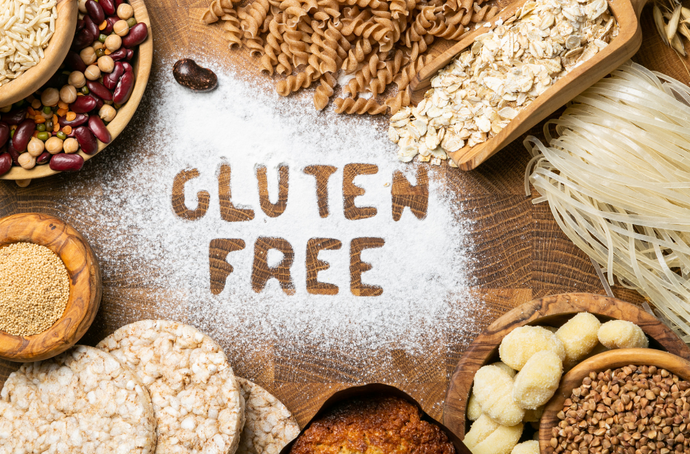
In a world where time is a precious commodity and the desire for a healthier, slimmer self is a common aspiration, the quest to shed those extra pounds quickly and efficiently often takes centre stage.
If you seek a well-researched guide to help you balance your weight, keep reading further! This guide consists of 8 steps based on meticulous research, which might help you maintain your weight and lead you to a healthy lifestyle.
8 Steps To Consider While Reducing Weight
1. Intermittent Fasting
Recent research suggests that Intermittent fasting helps reduce weight by narrowing the meal time frame through various fasting methods. Which includes:
-
Alternate Day Fasting (ADF): This method involves fasting every other day and following a diet on non-fasting days.
-
The 5:2 Diet: In this approach, individuals fast for two days out of every seven. On fasting days, they typically consume 500–600 calories.
- The 16/8 Method: This strategy requires fasting for 16 hours and restricting eating to an 8-hour window. For many, this eating window falls between noon and 8 pm.
Note: Intermittent fasting is not for everyone; skipping meals below 18 or during a medical condition is not suggested—research well before starting an Intermittent fasting regime.
2. Regular Exercise
Continuing regular exercise can help lose weight, suggests myDr. You can indulge in cardio workouts such as jogging, cycling, walking, or swimming. However, if you have any underlying health condition, the best idea is to consult a health professional. He might suggest the appropriate exercise you require to support your fast weight-loss diet according to your age.
3. Balancing Gut Bacteria
While doing in-depth research, we found a case study claiming to maintain weight by balancing your gut bacteria.
The human gut teems with an extensive array of microorganisms, housing approximately 30 - 39 trillion bacteria. Each person possesses a unique bacterial composition, with certain strains capable of augmenting calorie absorption, leading to fat accumulation and weight gain. Thus, specific dietary choices can promote a healthier balance of gut bacteria:
-
Incorporating more fruits, vegetables, and grains bolsters fibre intake.
-
Probiotic-rich options like sauerkraut, kimchi, kefir, yogurt, tempeh, and miso enhance beneficial bacteria while inhibiting harmful ones.
- Stimulate the growth of helpful bacteria with chicory root, artichoke, onion, garlic, asparagus, leeks, banana, avocado, and grains like oats and barley.
4. Prioritising Fibre Intake
Research conducted by Better Health Channel highlights that eating fibre can effectively reduce excessive fat gain.
Dietary fibre consists of plant-derived carbohydrates resistant to small intestine digestion, distinguishing them from sugar and starch. Incorporating ample fibre into your weight loss diet can enhance the sensation of fullness, potentially facilitating weight reduction.
Fibre-rich food options encompass:
- Whole-grain breakfast cereals, whole-wheat pasta, whole-grain bread, oats, barley, and rye
- Fruits and vegetables
- Legumes like peas, beans, and pulses
- Nuts and seeds
Also Read: Weight Loss Meal Plan with Keto Diet
5. Switch To Keto Diet
In addition to emphasising physical activity and adopting suitable precautions, individuals should follow wholesome dietary options. After exploring various reviews, we have come across keto as a notable deity option. You must have seen famous personalities advertising the ketogenic lifestyle. So, we did our research and came across a research by myDr Which explains:
“This dietary regimen is characterised by its high-fat content, moderate protein intake, and low carbohydrate consumption. By decreasing carbs and increasing fat intake, the body undergoes a metabolic process known as ketosis. During ketosis, the body converts fats into ketones, molecules capable of providing energy to the brain.”
In a nutshell, the keto diet tends to preserve muscle mass while promoting fat loss. This is because protein intake is typically moderate, and the body primarily relies on fat for energy.
6. Refrain from Trendy Dieting Practices
Some fast weight loss diets impose strict calorie restrictions to attain swift weight loss. Unfortunately, many of these diets pose safety concerns. Moreover, they are typically unsustainable over extended periods, making them ineffective for achieving long-term weight management.
With the increasing consumption of fast weight-loss pills, research suggests consuming approximately 1/2 to 1 pound per week is an appropriate diet for promoting gradual weight loss.
7. Drink More Water
While executing our research, we found a study stating, "Drinking an adequate amount of water can aid weight loss in various ways.'
Consuming water before a meal can help reduce your food intake, potentially curbing overeating. Additionally, water may play a role in boosting fat metabolism supporting long-term weight loss goals. It's essential to opt for water or low-calorie beverages over sugary options like soda, which can contribute to weight gain due to their high sugar and calorie content.
Furthermore, staying hydrated with water during exercise is crucial for overall health and can complement your weight loss efforts.
8. Reducing Carbohydrate Consumption
A study suggests that the prevalence of added sugars in the Western diet has been steadily increasing, and this has been unequivocally linked to obesity, even when these sugars are found in beverages rather than solid foods.
-
Opting for whole-grain rice, bread, and pasta instead of their white counterparts
-
Consuming fruits, nuts, and seeds over high-sugar snacks
-
Preferring herbal teas and fruit-infused water to sugary sodas
- Selecting smoothies made with water or milk instead of fruit juices
Takeaway
Achieving your weight loss goal requires a balanced and well-informed approach. The eight steps outlined in this article provide valuable insights into the journey of shedding unwanted pounds with minimum investment.
The article emphasises the importance of avoiding trendy, extreme diets for gradual, long-term weight management. By following these steps and maintaining dedication, individuals can embark on a healthier lifestyle and successfully achieve their weight loss goals.

